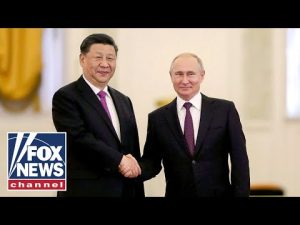It appears that the guardians of free speech in the United Kingdom are encountering quite the pickle, and actor-comedian Rob Schneider isn’t mincing words about it. Imagine a place where one’s chore for expressing a thought is a cozy trip behind bars. According to Schneider, a staggering 12,000 folks annually in the U.K. endure such treatment for expressing what could be unpopular opinions or pesky tweets. One would think they had warped into a dystopian novel by George Orwell rather than living in the place that once championed free speech rights.
Rob Schneider is not alone in his concern. He mentions the incident where an award-winning comedian was escorted off a plane, not by fans or a welcoming committee but by five police officers eager to wag their fingers at him for, of all things, exercising his vocal cords. In a land still grappling with issues like Islamic grooming gangs and the threats women face when walking the streets alone, the priorities seem questionably askew when law enforcement expends resources on a jester rather than thwarting crime.
It’s particularly jarring when the sensitivities of a few seem to muzzle the broader public’s ability to think, speak, or even giggle at a joke. The “heckler’s veto,” as it’s been coined, seems to now hold the throne, empowering the easily offended to dictate what others may hear or see. It’s as if sensitivity has become the new ruler, and everyone else is expected to comply with the whims of the most delicate eardrums in town.
Schneider raises another point about the perils of censorship. He scoffs at the “Biden-Harris regime” and praises Elon Musk for keeping platforms like Twitter open for free expression. Imagine if all forms of communication were under the iron grip of the perpetually aggrieved. The very idea sends shivers down the spine of anyone who cherishes a good chuckle or an open debate. Let’s face it; a society suffocated by its sensitivity is akin to a one-channel television—utterly dreary.
Despite the noise, there’s a silver lining, Schneider argues, with figures like J.K. Rowling and muted acknowledgments from U.K. leaders that the focus should be elsewhere. Perhaps the current uproar will incite change and restore some sanity to the framework of free speech. And if nothing else, it has sparked awareness, with folks like Schneider ready to amplify the narrative through new projects and timely satire. His parting jab is not without wit, offering thanks to the London police for the inadvertent publicity boost. It seems there’s hope that clarity will prevail, just as long as people keep their sense of humor intact.







